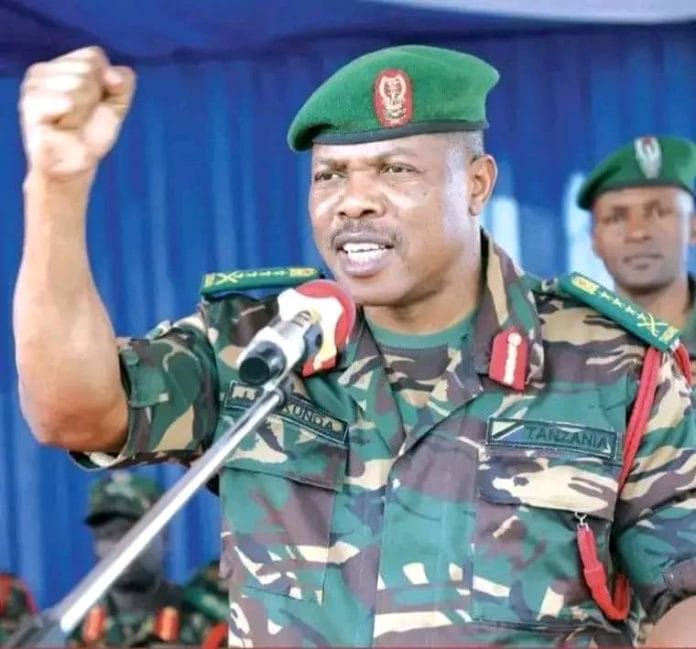In a rare act of courage and restraint, Tanzania’s Chief of Defense Forces, General Jacob Mkunda, has won widespread praise from citizens for reportedly standing with the people during recent anti-government protests.
According to accounts circulating across Tanzania, General Mkunda made the decision to protect protesters instead of ordering the army to open fire, defying expectations that the military would be used to suppress demonstrations.
This act of restraint has made him an instant national hero, with many Tanzanians describing him as a symbol of integrity, patriotism, and justice.
In a political climate marked by tension, violence, and growing public frustration, Mkunda’s choice to prioritize human life over regime loyalty has sent shockwaves through the nation’s power structures.
Protesters had taken to the streets following a controversial election marred by allegations of repression, disqualifications, and arrests of opposition figures.
While security forces in some regions were accused of heavy-handed responses, reports suggest that General Mkunda instructed his officers to exercise restraint and avoid unnecessary bloodshed.
This move not only helped de-escalate violence but also showcased the Tanzanian military’s potential to act as a professional and people-centered institution.
Across social media, citizens have hailed the General as a defender of democracy, comparing him to historical African figures who placed national unity above political survival.
Some commentators argue that Mkunda’s stance represents a defining moment for civil-military relations in Tanzania, setting a new precedent for military professionalism in times of political turmoil.
His popularity has surged beyond the barracks, as ordinary Tanzanians share messages of gratitude and admiration, calling him “the soldier of the people.”
Observers note that General Mkunda’s decision reflects moral strength and deep respect for the rule of law, qualities that are often tested under authoritarian pressure.
It also raises an important debate across East Africa: What is the role of the military in times of political crisis — to protect the government or to safeguard the people?
Many Kenyans, Ugandans, and Malawians have joined the discussion online, contrasting Mkunda’s example with the behavior of generals in their own countries during periods of unrest.
In Kenya, for instance, some social media users have questioned whether their military leadership would stand with the people or the state in a similar situation.
By choosing restraint over repression, General Mkunda has demonstrated that true strength lies in humanity, not in the use of force.
His actions could mark a turning point in how African militaries engage with citizens, reminding leaders across the continent that loyalty to the nation should always outweigh loyalty to politics.
As Tanzania reflects on this moment of conscience and courage, one question echoes beyond its borders — will other generals across Africa follow Mkunda’s example and stand for justice when it matters most?
Discover more from The Maravi Post
Subscribe to get the latest posts sent to your email.



